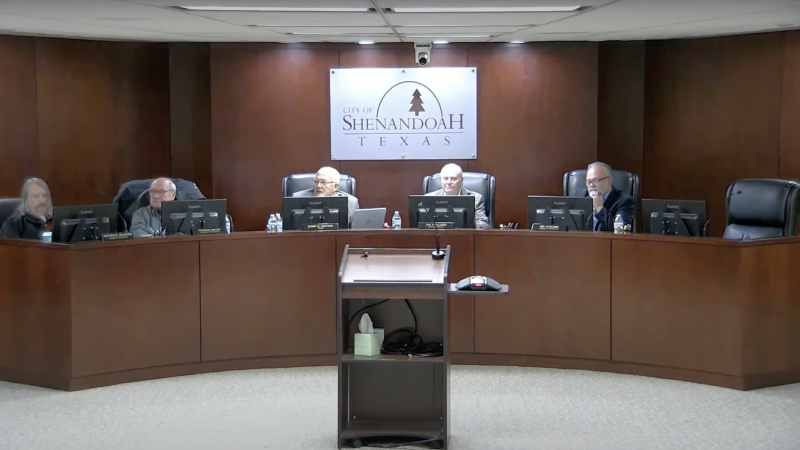Sex Offender Registry Prevents Dying, Bedridden Man From Spending Final Days at Home
"My opinion is no exceptions should be made," says the chief of the police.

The daughter of a bedridden, dying 79-year-old man asked for permission to care for him at home. This request was denied by the city council of Shenandoah, since the man is on the sex offender registry. Registrants must live at least 1,000 feet from playgrounds.
The daughter's home is 894 feet from a toddler park.
"The city council voted not to have any exceptions," City Attorney William Ferebee tells Reason.
A local ordinance adopted in 2018 established the 1,000-feet rule. The council would have to vote to amend it, according to The Courier. At a council meeting last month, the members debated what that would entail: Either they would have to give the chief of police the authority to make exceptions to the registry requirements, or they would have to grant that responsibility to themselves.
While my reading of the Texas bill regarding registries seems to require that towns "establish procedures for a registered sex offender to apply for an exemption from the ordinance," that option was not provided in Shenandoah. The chief of police, Troye Dunlap, was not eager to take on the exemption-granting role.
"My opinion is no exceptions should be made," Dunlap tells Reason. "If something were to happen, then it falls on me."
The possibility of something happening seems remote, since the man in question is confined to his bed and receiving end-of-life care. But Dunlap worries that any exception would create the possibility of future risks.
"It's like when we barricade off roads during a hurricane and someone wants to go around the barricade," he says. "If I let you in, then everyone else wants to, and everyone's going to have their reasons. You're going to have to reconsider that line for everybody."
On the other hand, there is a grand total of two people on the registry in Shenandoah.
What's more, the 1,000-foot buffer zone is itself based on two intuitive but incorrect beliefs about people on the registry: that they reoffend at a high rate, and that they victimize their neighbors. Mountains of research show that both of these beliefs are false.
According Sandy Rozek, communications director of the National Association for Rational Sex Offense Laws (NARSOL), multiple studies find no correlation between residency restrictions and protecting children.
"Here is a man with zero risk of harming a child, who wants to be with those he loves as he prepares to die," says Rozek. "To deny him this is heartless, cruel, and inhumane."
During the city council meeting, one of the members explored granting the exception. But then the others spoke about how future decisions could be more fraught. In the end, the vote was unanimous: no exceptions.
Rozek notes that there's no registry for murderers; other crimes do not result in draconian, permanent restrictions even after the sentence is served.
"Whatever he did to require sex offender registration, whether or not it involved an offense against a child, he has paid his debt for his crime," says Rozek. "That was supposed to be the end of his punishment, but being on the registry continues his punishment up to the point of death. That is just wrong."


Show Comments (89)